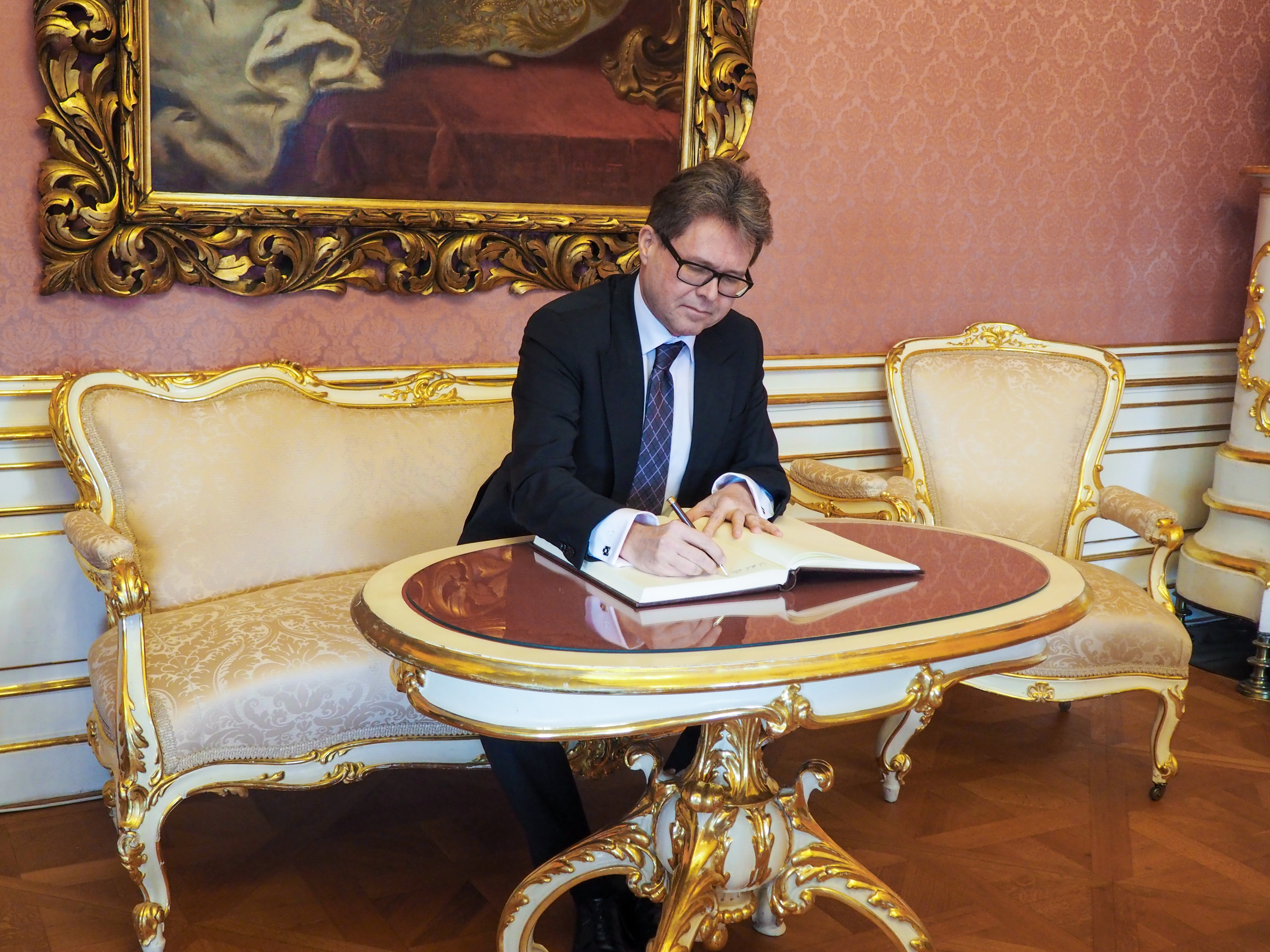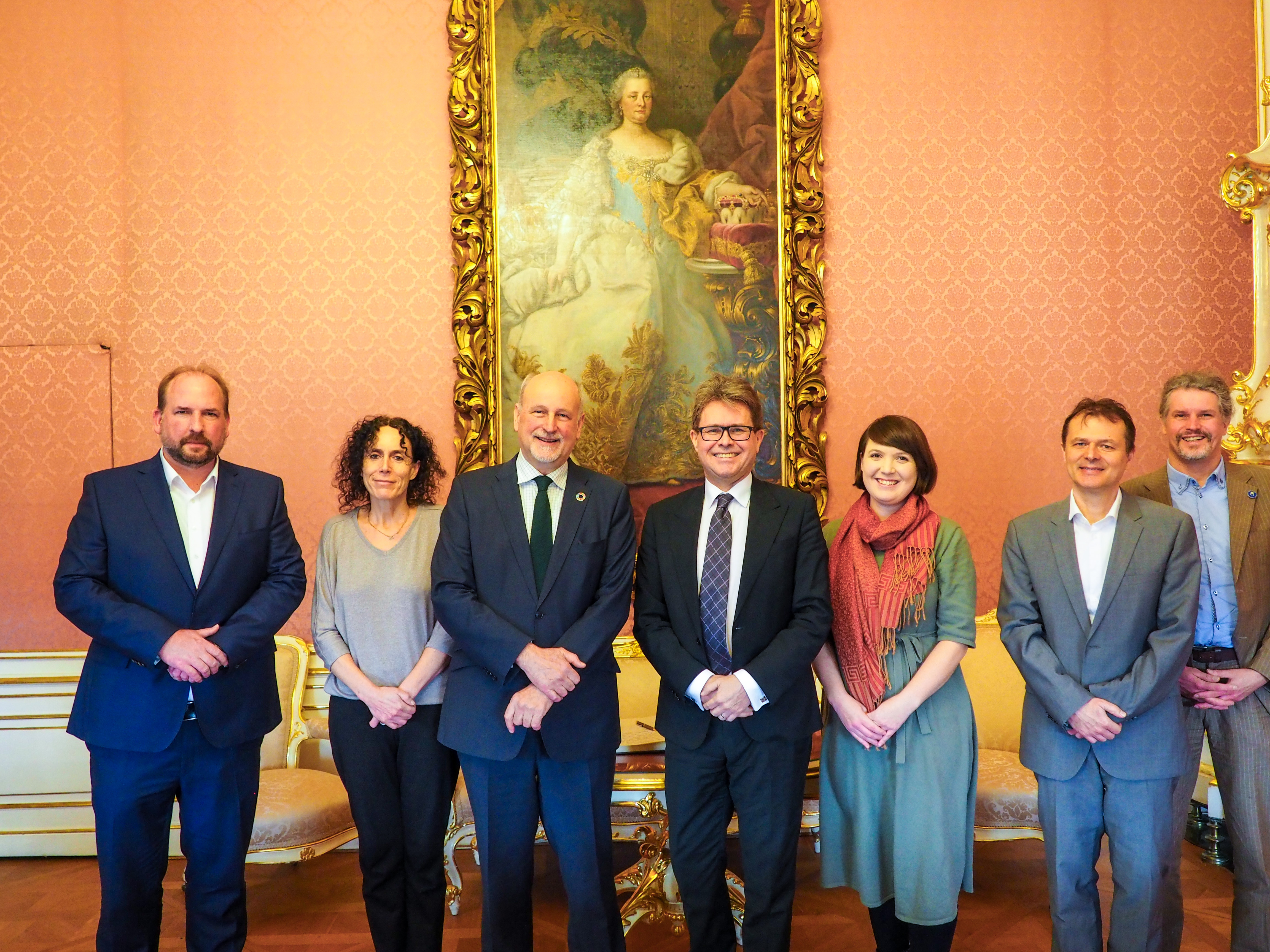
IIASA recently welcomed Austria's Federal Minister for Education, Science, and Research, Martin Polaschek, to discuss ongoing research projects and explore potential collaborations between the institute and the Austrian government.
 © IIASA
© IIASA
Following a tour of the IIASA premises in Laxenburg, Minister Polaschek met with IIASA Interim Deputy Director General for Science Wolfgang Lutz, Strategic Initiatives Program Director Steffen Fritz, Population and Just Societies Program Director Anne Goujon, Biodiversity and Natural Resources Interim Program Director Petr Havlik, Economic Frontiers Program Director Michael Kuhn, and Teresa Deubelli-Hwang, principal investigator of the Tools for Raising and UnderStanding Trust in systems science through citizen engagement (TRUST) strategic initiative.
The discussion covered the institute's commitment to participation-driven science and the TRUST initiative, which focuses on strengthening the knowledge base for raising awareness on fostering trust through participation-driven science, lowering the barrier for scientists to use participation-driven approaches, and providing concrete empirical evidence of the role of participation driven science for raising trust in science.
Further exploration of state-of-the-art models and tools, as well as the institute’s ongoing efforts in science diplomacy helped gain valuable insights and perspective on how IIASA research can help inform policy decisions in Austria. The visit also provided an opportunity to discuss ongoing and potential new areas of collaboration and opportunities for intensifying cooperation between IIASA and its host country.
IIASA looks forward to continued dialogue and collaboration with Austrian institutions that will lead to important advancements in addressing global challenges and promoting science diplomacy.
 © IIASA
© IIASA
News

04 July 2024
ALFAwetlands: assessing mid-term project milestones

26 June 2024
Wavelet phase difference and granger causality: Evidence connecting phase difference inference to granger causality

21 May 2024
